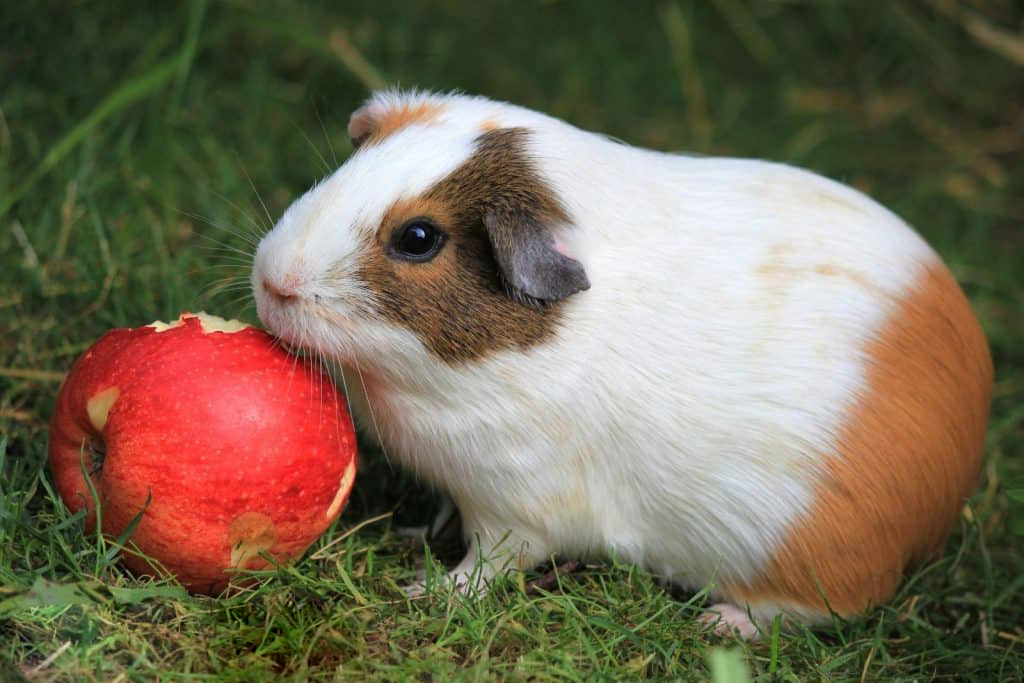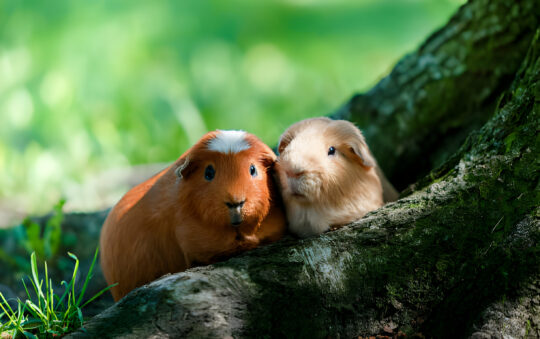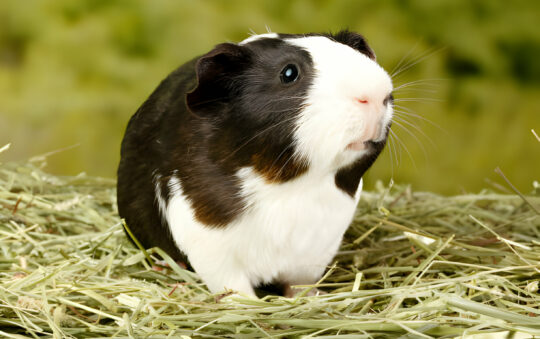This introduction serves as the foundation for understanding the basics of guinea pigs as pets, their dietary needs, and where apples fit into this picture.
Guinea pigs, known scientifically as Cavia porcellus, are small, sociable, and herbivorous creatures that have been cherished as pets for centuries.
Originating from the Andes, these animals have evolved a specific diet that is predominantly made up of hay, fresh vegetables, and a small portion of fruits. As pet owners, understanding the dietary needs and restrictions of guinea pigs is crucial for their health and longevity.
Apples, on the other hand, are one of the most popular and widely consumed fruits globally. Known for their sweet taste and nutritional benefits, they are a staple in human diets. However, when it comes to feeding apples to guinea pigs, there are several important factors to consider.
This section will delve into the natural dietary preferences of guinea pigs, how their digestive system functions, and what role fruits like apples can play in their diet. We will explore the nutritional composition of apples – including vitamins, minerals, sugar content, and fiber – and how these elements impact the health of a guinea pig.
Understanding the basics of guinea pigs’ dietary needs and how apples fit into their nutrition will help pet owners make informed decisions about including this fruit in their guinea pigs’ diets. It’s not just about whether guinea pigs can eat apples, but how to do it safely and responsibly to ensure the health and well-being of these adorable furry companions.
Stay tuned as we navigate through the nutritional landscape of guinea pigs and apples, laying the groundwork for responsible and healthy feeding practices for your cherished pet.
Contents
Nutritional Benefits and Risks

Guinea pigs can indeed safely enjoy apples, but it’s important to understand the nutritional benefits and risks involved. Apples are a great source of Vitamin C, which is essential for guinea pigs as they cannot produce it naturally.
This vitamin is crucial for their overall health, aiding in bone and teeth development and supporting their immune system. Additionally, apples provide dietary fiber, beneficial for the digestive health of guinea pigs, ensuring regular bowel movements and a healthy gut.
However, the high sugar content in apples poses a significant risk. Guinea pigs have sensitive digestive systems, and excessive sugar intake can lead to obesity and diabetes. Therefore, moderation is key when including apples in their diet.
It’s recommended to offer apples as an occasional treat rather than a regular part of their daily intake. This balance ensures that your guinea pig can enjoy the health benefits of apples without the risks associated with high sugar consumption.
Lastly, it’s vital to remember to remove the apple seeds and stem before offering them to your guinea pig. Apple seeds contain a compound that can be toxic, as it releases cyanide when digested, posing a serious health risk.
Proper preparation of the apple, such as washing and cutting it into suitable sizes, is essential for the safety and health of your guinea pig. By following these guidelines, you can safely include apples in your guinea pig’s diet as a tasty and nutritious treat.
How to Properly Include Apples in Your Guinea Pig’s Diet
The key is to incorporate apples as a treat, not as a staple food, due to their sugar content and acidity. Here’s how to do it properly:
Firstly, portion control is crucial. Start by offering small pieces of apple to your guinea pig. A good rule of thumb is to provide a piece the size of a guinea pig’s ear or smaller.
This small portion is enough to give them a taste without overloading their digestive system with sugar. It’s recommended to feed apples no more than once or twice a week. Observe how your guinea pig reacts to the fruit. Some guinea pigs might be more sensitive to fruits than others, so it’s important to monitor their response.

Preparation is another vital aspect. Always wash the apple thoroughly to remove any pesticides or chemicals that might be present on the skin. Organic apples are a great choice to avoid these chemicals.
Remove the apple seeds and stem, as they can be harmful to your guinea pig. It’s also a good idea to peel the apple, as the skin can be tough for them to digest.
Finally, balance is key in a guinea pig’s diet. Apples should be a part of a varied diet that includes hay, fresh vegetables, a small amount of high-quality guinea pig pellets, and clean, fresh water. This variety ensures that your guinea pig gets all the nutrients they need.
Introduce apples gradually into their diet and always keep a close eye on their health. If you notice any changes in their digestion or behavior, consult with a veterinarian.
Remember, every guinea pig is unique, so what works for one may not work for another. Pay attention to your pet’s individual needs and preferences to ensure they stay happy and healthy.
Balancing Your Guinea Pig’s Overall Nutrition
Balancing the nutrition of your guinea pig is crucial for their health and longevity. While treats like apples can be a delightful addition to their diet, they should be part of a well-rounded and nutritionally complete feeding plan. Here are some tips to ensure your guinea pig receives a balanced diet.
Firstly, the cornerstone of a guinea pig’s diet is high-quality hay. Hay provides the essential fiber needed for their digestive health and should be available to them at all times. It helps with dental health too, as the constant chewing keeps their continuously growing teeth at the right length.
Timothy hay is a popular choice, but there are other varieties like orchard grass or meadow hay that are also suitable.
Fresh vegetables are the next important aspect of their diet. Leafy greens like romaine lettuce, kale, and parsley are excellent choices. However, it’s essential to introduce any new vegetables slowly and in small quantities to avoid upsetting their sensitive digestive systems. Rotate the types of greens and other vegetables you offer to provide a range of nutrients and prevent dietary boredom.
High-quality guinea pig pellets fortified with Vitamin C should also be included but in moderation. Unlike hay and vegetables, pellets are dense in calories and should be given as per the guidelines based on your guinea pig’s weight and age. Always ensure fresh, clean water is available for your guinea pig, as hydration is vital for their health.
In addition to a balanced diet, regular exercise is important. Ensure your guinea pig has enough space to move around and explore, as this is vital for their physical and mental well-being. A combination of a nutritious diet and active lifestyle will help keep your guinea pig healthy and happy.
Regularly consult with a veterinarian to tailor the diet to your pet’s specific needs and to conduct routine health check-ups. By following these guidelines, you can provide a balanced and nutritious diet that caters to your guinea pig’s overall well-being.
In Conclusion
In conclusion, understanding and catering to the dietary needs of your guinea pig is essential for their health and happiness. Incorporating treats like apples into their diet can be beneficial, but it should be done with care and moderation.
Always prioritize a balanced diet that includes ample hay, a variety of fresh vegetables, a controlled amount of high-quality pellets, and constant access to fresh water.
Remember, the key to a healthy guinea pig lies not just in what they eat but also in their overall lifestyle. Regular exercise, a clean and spacious living environment, and attentive care are just as important as a well-balanced diet. Pay close attention to any changes in your guinea pig’s eating habits or behavior, as these can be indicators of health issues.
Consult with your veterinarian regularly for advice on diet and health, especially if you’re introducing new foods like apples. They can provide guidance tailored to your guinea pig’s specific age, weight, and health status.
Ultimately, the joy of caring for a guinea pig comes from seeing them thrive. By providing them with the right balance of nutrients, exercise, and care, you’re ensuring a long, happy, and healthy life for your furry companion.
So, enjoy every moment with your guinea pig, and take pride in knowing you’re giving them the best care possible.



